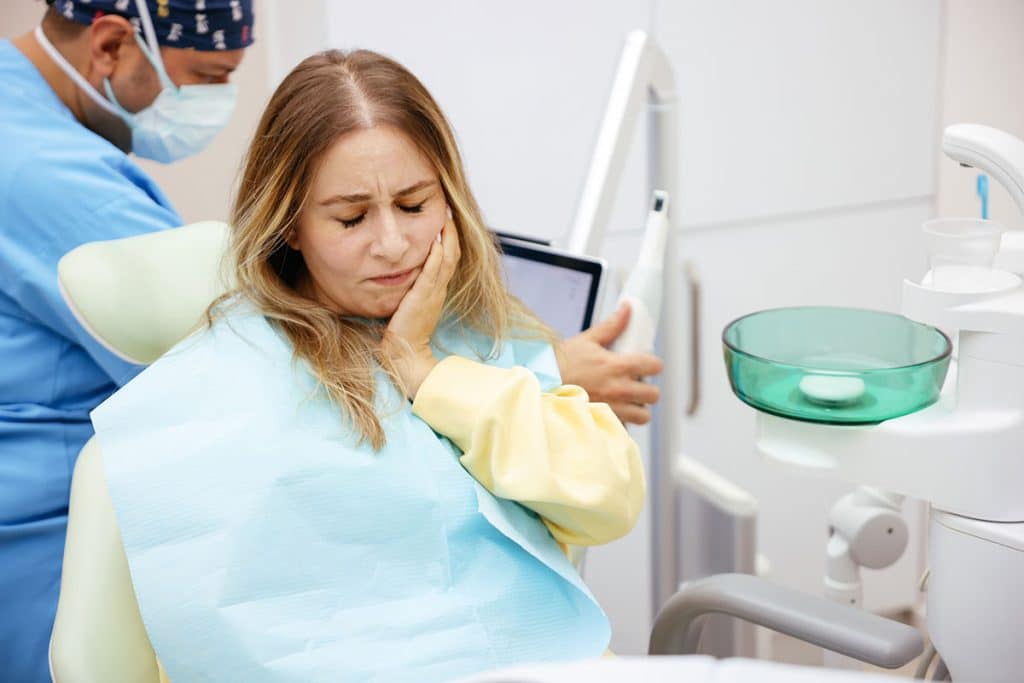What Is Considered A Dental Emergency?

Dental issues can often arise unexpectedly, leaving you wondering whether the situation warrants immediate attention or if it can wait for a routine appointment. Understanding what constitutes a dental emergency is essential for protecting your oral health and preventing potential complications. This guide will walk you through the key aspects of dental emergencies, how to handle them, and how to prevent them in the future.
Dental Emergencies vs. Routine Dental Care
Routine dental care includes check-ups, cleanings, and minor procedures, while dental emergencies require immediate attention for severe pain, infections, or major trauma.
Some key signs of a dental emergency include:
- Severe, persistent toothache
- Swelling in the face or mouth
- A knocked-out or broken tooth
- Uncontrolled bleeding from the gums or mouth
- Signs of infection, such as pus, fever, or swelling
Recognizing these symptoms is the first step in seeking timely treatment.
Common Examples of Dental Emergencies
Here are some of the most common dental emergencies and what they entail:
1. Severe Toothache
A severe toothache, particularly one that disrupts sleep or daily activities, could indicate an infection, abscess, or internal tooth damage. Painkillers may provide temporary relief, but a professional evaluation is necessary.
2. Knocked-Out Tooth
Accidents or sports injuries can lead to losing a tooth. If this happens, rinse the tooth gently with water, avoiding the root, and try to place it back into its socket or store it in milk until you see a dentist, ideally within an hour of the injury. Immediate care improves the odds of saving the tooth.
3. Broken or Chipped Tooth
A fracture or chip can leave the tooth vulnerable to infection or further damage. Until you reach the dentist, rinse your mouth with warm water and apply a cold compress to reduce swelling.
4. Lost Dental Crown or Filling
The loss of a dental crown or filling exposes the inner structure of your tooth and can lead to sensitivity or pain. Use dental cement or sugar-free gum to protect the area temporarily, then seek professional attention.
5. Dental Abscess
An abscess is a serious condition that arises from a bacterial infection, often accompanied by significant pain, swelling, and fever. Left untreated, it can spread to other areas of your body and become life-threatening.
Handling Dental Emergencies at Home
While professional dental care is essential for emergencies, there are steps you can take at home to manage symptoms and protect your teeth:
- For pain relief: Use over-the-counter pain medication (such as ibuprofen) and apply a cold compress to minimize swelling.
- For knocked-out teeth or fragments: Keep them in milk or a tooth preservation product and avoid scrubbing the root.
- For bleeding gums or mouth injuries: Apply gentle pressure with a clean gauze or cloth to control the bleeding.
Although these steps can provide temporary relief, they are not substitutes for professional dental care.
Why Immediate Treatment is Crucial
Ignoring dental emergencies can lead to serious consequences:
- Pain may worsen and become more difficult to manage.
- Untreated infections, such as dental abscesses, may spread to the jaw, neck, or even vital organs.
- Delaying care for a knocked-out or broken tooth may reduce the chances of saving it.
Timely treatment can prevent long-term complications and help preserve your oral health.
Preventing Dental Emergencies
While some emergencies are unavoidable, many can be prevented through good oral hygiene and regular dental care:
- Brush and floss daily to maintain healthy teeth and gums.
- Wear a mouthguard during sports to protect against injuries.
- Avoid chewing hard objects, such as ice or pens, that could damage your teeth.
- Schedule regular dental check-ups to catch potential issues early.
- Follow your dentist’s guidance on caring for restorations like crowns, bridges, and fillings.
Be Prepared and Protect Your Smile
Dental emergencies can be stressful, but understanding what qualifies as an emergency and taking swift action can make all the difference. Always have your dentist’s emergency contact information on hand, and don’t hesitate to seek help when needed. Remember, prevention is your best defense. Stay proactive with your dental health and enjoy the peace of mind that comes with being prepared.
Frequently Asked Questions
How do I know if my tooth pain is an emergency?
If your tooth pain is severe, persistent, or accompanied by swelling, fever, or signs of infection, it’s likely an emergency. You should contact your dentist immediately.
What should I do if my child chips a tooth?
If your child chips a tooth, rinse their mouth with warm water and apply a cold compress to reduce swelling. Keep the chipped piece, if possible, and contact your dentist for an urgent appointment.
Contact Heart of Texas Endodontics
In case of a dental emergency, call Heart of Texas Endodontics at 254-778-4400 right away. During regular office hours we will see you as soon as possible. If you reach us after hours please leave a message and someone will contact you shortly. In case of a life-threatening emergency, call 911 or proceed to the nearest emergency department.

